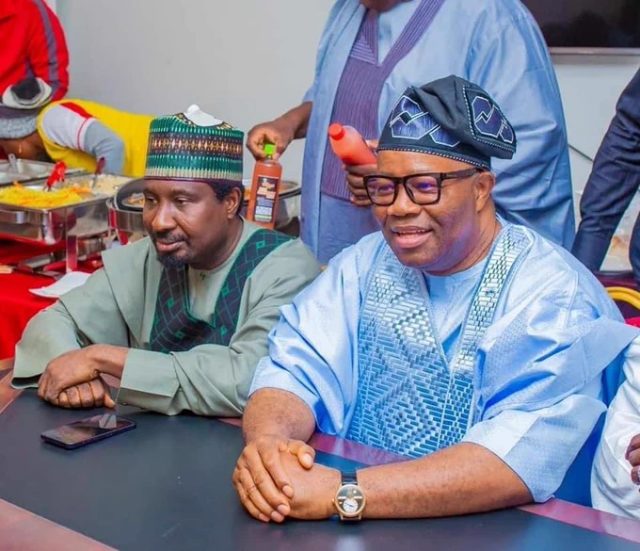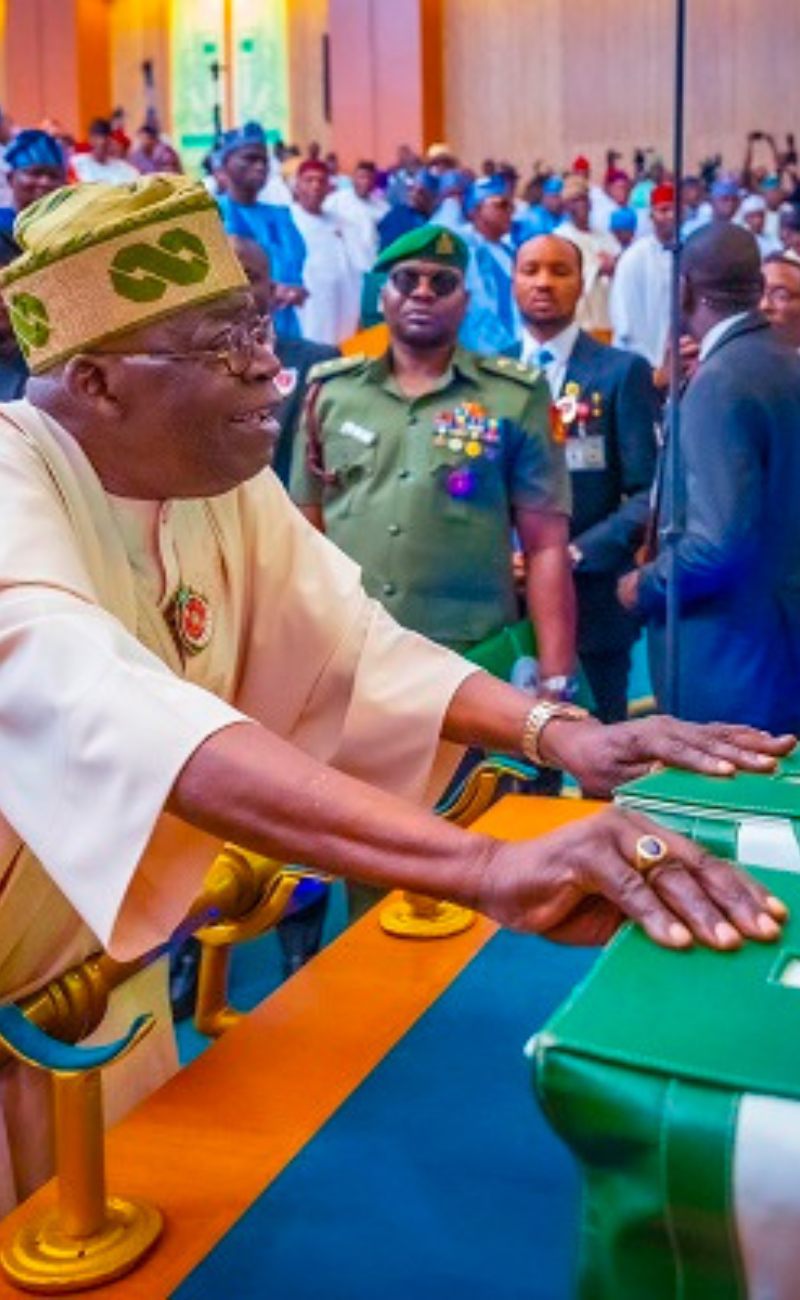As part of OrderPaper’s mandate to bridge the gap between people and parliament, this special edition of its Legislative Intelligence Forecast Entry (LIFE) Service is focused on the Nigerian Senate as it resumes from a five-week annual recess.
Authors: Temidayo Taiwo-Sidiq and Ojochenemi Onje-James

There are huge indications that both chambers of the National Assembly will resume plenary sessions this week after its annual six-week vacation. Although the House of Representatives has made clear its decision to resume full legislative activities on Tuesday, not much has been heard from the Senate.
Analysts are pointing to the fact that the Senators are likely to resume at least one week late, considering the fact that they proceeded on recess on August 7, 2023, far later than their colleagues in the House of Representatives due to the mandatory screening and confirmation exercise it conducted for forty-eight (48) Ministers-Designate of President Bola Tinubu.
Shortly before the lawmakers proceeded on the recess, both chambers of the National Assembly announced the constitution of its Committees, with Senator Godswill Akpabio; President of the Senate, releasing seventy-four Standing Committees.
During the recess, a good number of the Members of the House of Representatives engaged in oversight activities in the form of Public/Investigative Hearings conducted by various Ad-hoc Committees, while some Senate Committees paid oversight visits to project sites, as well as Ministries, Departments and Agencies (MDAs). Quite importantly, many of the Senators used the opportunity to travel abroad. Thanks in part to the incentives provided by the National Assembly to enjoy their holidays.
The climax of the recess was the three-day Retreat for the Leadership of the Tenth National Assembly in Uyo, the Akwa Ibom State capital, organised by the National Institute for Legislative and Democratic Studies (NILDS) to identify top priorities for both chambers and develop strategic objectives for their legislative agenda.
In the event that the Senate resumes plenary sessions this week, what are the pressing issues on its agenda?
1. Legislative Agenda
One of the major expectations of parliamentary analysts and indeed Nigerians is the release of a formal legislative agenda that would guide the activities of the Tenth Senate. Although not much has been heard about the preparation of a legislative agenda in the Red Chamber, an indication of what is likely to feature in any such agenda is contained in the inaugural speech of the President of the Senate, Godswill Akpabio.
As contained in the speech, Akpabio noted that the Tenth Senate under his leadership will “further strengthen the legislative space in continuation of the laudable efforts made by the 9th Senate under the able leadership of H.E. Senator Ahmed Lawan, GCON, President of the 9th Senate.” Chief among the issues he listed are:
(i) Gender matters, with specific affirmative provisions to guarantee women’s inclusivity (ii) Issues relating to persons with special needs and equality (iii) Engaging, empowering and rewarding our resourceful and innovative youths in terms of protection of intellectual innovations and property, and improved access to finance for technological start-ups. “We must recognise and prepare for a mid-21st century global economy that places a premium on intellectual content and knowledge, and our young men and women must be supported to engage competitively.,” he noted.
Others are (iv) Expansion of the revenue streams available to the country, especially from our huge but largely unregulated natural and solid mineral resources base. These additional sources of revenue will build the nation’s resilience to shocks and stresses resulting from the fluctuation of oil prices in the international market; and (v) We will, as a forward-looking Senate, pass laws that emphasize economic viability, social acceptability and environmental sustainability, to encourage alternate and green technologies without prejudicing our developmental needs.
It would be a pleasant surprise to see that the Senators will be welcomed with a legislative agenda of the Senate by its leadership.
READ ALSO: Full Inaugural Speech of Godswill Akpabio, President of the 10th Senate
2. Operation secure your seat
Although the majority of seats that incumbent lawmakers have lost in the last few weeks, the preoccupation of most Senators will be to pursue redress or defend their mandates at the Court of Appeal.
As the lawmaker representing the Federal Capital Territory (FCT), Senator Ireti Kingibe, said, over ninety per cent (90%) of her colleagues have been heavily distracted due to their cases at the National Assembly Election Tribunal.
3. National Assembly Politics
As the Senators settle for the second half of their first legislative year, the President of the Senate, Godswill Akpabio, will, on the one hand, be focused on effective service delivery while putting an extra eye on his back with alleged impeachment threats lurking around him.
According to aggrieved lawmakers, Akpabio’s leadership has largely promoted the interest of the President at the expense of the national interest. Others include the allegations that he refused to consult his colleagues in the final clearance of the Ministerial Nominees and to deal with some interest groups over issues bordering on oil subsidy removal and electricity tariff. His critics also accuse his camp of portraying a winner-take-all approach in the allotment of Committee Chairmanship and also giving themselves preferential treatment in Resource Allocation (Supplementary Budget).
While the Senate Spokesperson has dismissed the alleged impeachment threat as an “imaginative composition’’ and media trials against the Senate President, he describes the Senate as a stable and one harmonious big family working for the betterment of Nigeria. He adds that they should be allowed to settle down for their national assignment.
According to an ex-Kaduna lawmaker, Senator Shehu Sani, “It’s normal for the aggrieved forces in the National Assembly to stalk Akpabio and wait for the best time to strike, but it’s too early to even think of impeaching him, and there is nothing wrong he has done to warrant impeachment. But he should always watch his back.” If the words of Senator Sani are anything to go by, Senator Akpabio will be tightening political security around his coveted seat in the Red Chamber.
Going by constitutional provisions, critics of Senator Akpabio will need at least 73 signatures out of the one hundred and eight other lawmakers in the Senate to ensure Akpabio’s removal. Akpabio’s All Progressives Congress (APC) occupies fifty-nine (59) of the one hundred and nine (109) Senate seats. All eyes will be on the possibility of Akpabio’s enemies or, perhaps, frenemies being able to outwit him.
READ ALSO: Impeachment Plot: Senate President, Akpabio and his ’10 sins’
4. Confirmations
Upon their return, legislative assignments the Senate is expected to handle will include addressing pending communications from President Tinubu requesting the screening and confirmation of various appointments made during the Senate’s vacation.
Top among these appointments are nominees for the Board and Management of the Niger Delta Development Commission (NDDC), Dr Olayemi Cardoso as the new Governor of the Central Bank of Nigeria, as well as those of Dr Jamila Bio Ibrahim and Ayodele Olawande as the Minister forYouth Development and Minister of State for Youth Development respectively.
Additionally, the Senate will be tasked with screening and confirming Zacch Adedeji as Chairman of the Federal Inland Revenue Service in about ninety days and Ms. Delu Yakubu as the pioneer National Coordinator/Chief Executive Officer of the National Social Investment Programmes Agency (NSIP).
It will surely serve as another litmus test for the Akpabio-led Senate to prove and assert its independence or tag along with the label of a ‘rubber stamp Assembly’ placed on the Ninth National Assembly up until its last day. Worse, Akpabio is already been “called out” for related issues.
READ ALSO: NDDC Board: President Tinubu nominates ex-lawmakers in amended appointments
5. Lawmaking
Plenary sessions in the first half of the Tenth Assembly’s first legislative year were largely characterised by the sponsorship of motions, especially on Road infrastructure in the country. While they will naturally consolidate on this, it is expected that a couple of Senators, especially the ranking lawmakers, will make frantic efforts to attach their names to important pieces of legislation through sponsorship and or co-sponsorship.
One such area of interest is the Electoral Act, especially if the complaints and dissatisfaction with conflicting judgements emanating from the Tribunals and Courts are taken seriously.
6. MTEF and Appropriation Bill
Another major legislative assignment awaiting the Senate is the consideration and approval of the Medium Term Expenditure Framework (MTEF) and Fiscal Strategy Paper (FSP), the precursor to the 2024 budget and an amendment to the Finance Act as an accompanying legislation to the Appropriation Bill.
In line with Nigeria’s Fiscal Responsibility Act (FRA), this framework must be submitted to lawmakers four months before the commencement of the next financial year. The Ninth National Assembly worked hard to ensure that the January – December budget cycle was restored. If the continuity of that policy matters to the current leadership of the Senate, then the 2024 Budget estimates should get to the National Assembly anytime before the end of October.
In the words of Senator Sani Musa, Chairman of the Senate Committee on Finance, his team aims to ensure fiscal discipline and prudent revenue sourcing alongside aggressive oversight activities that will lead to blockage of revenue leakages and increase resources for the country. He notes that the informal sector, constituting about 80% of Nigeria’s economy, will be a focus area, as its Committee plans to formalise artisanal and medium-scale mining activities to harness revenue sources.
7. Oversight functions
On oversight duties, not many Adhoc Committees were set up by the Senate before it went on recess, but the few set up will be expected to submit their reports before the Red Chamber.
Some others, like the Senate Committee on Creative Economy, which visited the family of deceased Nigerian singer Ilerioluwa ‘Mohbad’ Aloba, are also likely to present their findings before parliament in the form of motions and eventual resolutions by the Senate.
For an Assembly that is barely six months old, reckless spending, under-remittance and general fiscal indiscipline among certain Ministries, Departments and Agencies (MDAs) under the previous administration of President Muhammadu Buhari will be unearthed. A phenomenon that will herald dozens of probes by the federal parliament, albeit in line with its constitutional mandate.
8. Representation/Zonal Intervention Projects
As part of its representative functions, the Zonal Intervention Project, commonly known as ‘Constituency Projects,’ is expected to kick off in these last months before the close of the year.
A lot of lawmakers will be looking out for avenues to influence projects to their constituencies and Senatorial Districts to ensure they retain popularity among the electorates, especially in the event of a court verdict for a re-run election.
The lawmakers will also handle petitions, most of which are seeking to address grievances from their constituents.
READ ALSO: Making a Difference: What to note about petitioning Nigeria’s National Assembly
9. State of the Nation
From the rising cost of living to the wave of insecurity across the country, judging especially from recent abductions and killings, as well as the worsening fall of the naira, the Nigerian economy is in dire straits, and the natural expectation is that the lawmakers would engage these issues.
Quite importantly, the imminent threat of indefinite strike action by Organised Labour on account of the federal government’s inability to meet its demand for palliatives to the average Nigerian would be one to be on the lookout for. These issues of concern follow the twin action of the Tinubu-led government to put an official end to the payment of petrol subsidies and rework its policy on foreign exchange.
It is a given that a shutdown of the economy for any duration longer than forty-eight hours will hurt Nigerians badly and will increase public criticism of the political class. It will be interesting to see how the federal parliament intervenes in this light.
10. Cost of governance
With hardship biting harder across the country and the Executive showing no signs of prioritising the need to cut the cost of governance evident in President Bola Tinubu’s appointment of nearly 50 Ministers, the attention of Nigerians will be drawn to the expenditure of the lawmakers.
Remember the viral sending of “prayers” to mailboxes to enable Senators to enjoy their holidays? There is still a long time for lawmakers to prove the “doubting Thomases” wrong. One such opportunity is the thorny issue of official vehicles for lawmakers, which will rear its head again. It will be interesting to see how the leadership of the National Assembly addresses the millions of questions and concerns that will be put forward.
Senator Akpabio had, during the recently-concluded Retreat for the Leadership of the Tenth National Assembly, emphasised the importance of focusing on the welfare and concerns of the people, as legislators represent citizens whose hopes and concerns must not be ignored. The number three citizen stressed that setting collective action templates for the nation’s development and a collaborative legislative agenda to address national challenges were key tasks for leaders of the legislature.
It is hoped that these will not just be great speechwriting for evergreen soundbites but philosophies that would become the people’s testament if the worsening state of the economy is put into consideration.
On the whole, while these legislative assignments and phenomena will dominate the Senate’s attention, the political dynamics within the Senate, particularly how the tensions between the Senate President and those plotting his removal, could influence the pace of progress.
It is nearly beyond doubt that the manner in which this issue and other political contestations that will come up are handled will play a huge role in shaping the Senate’s activities up to the Christmas and New Year Break in a few weeks.



